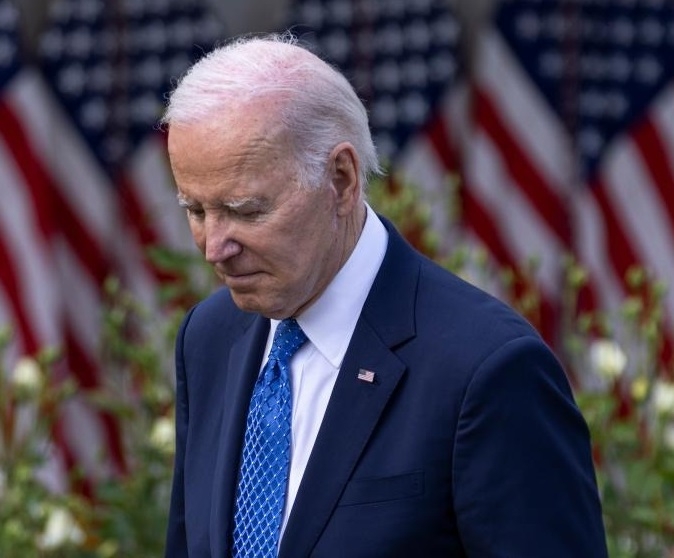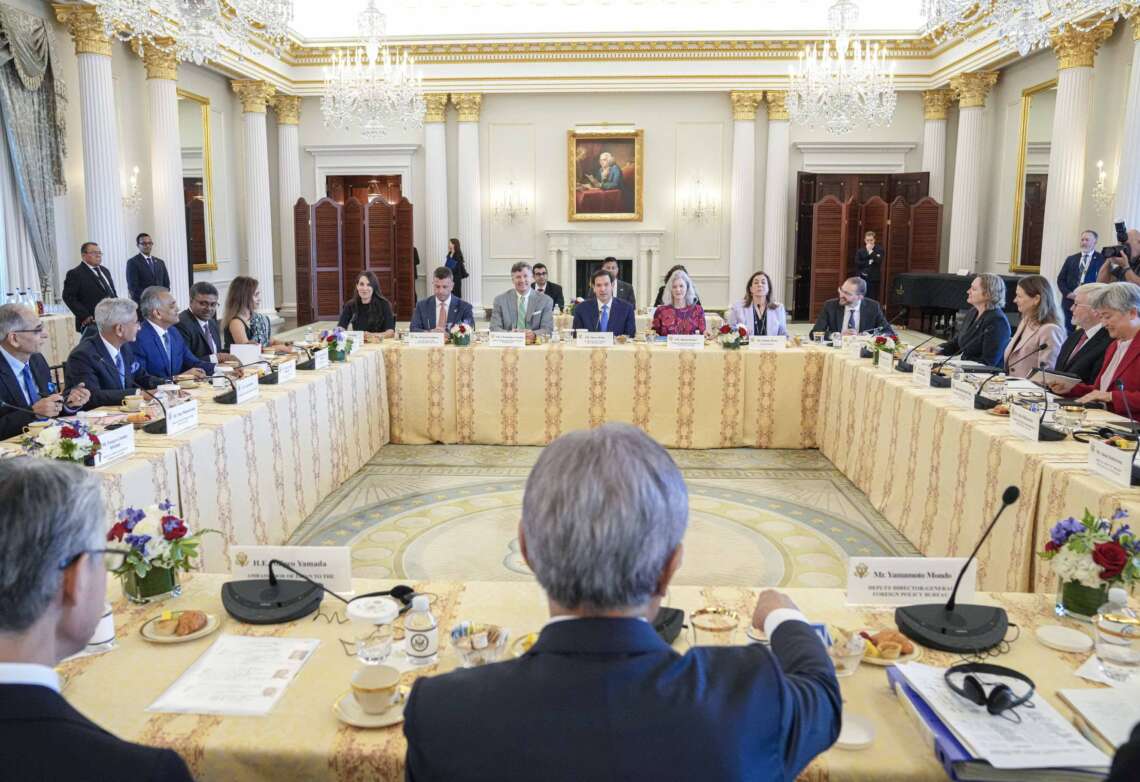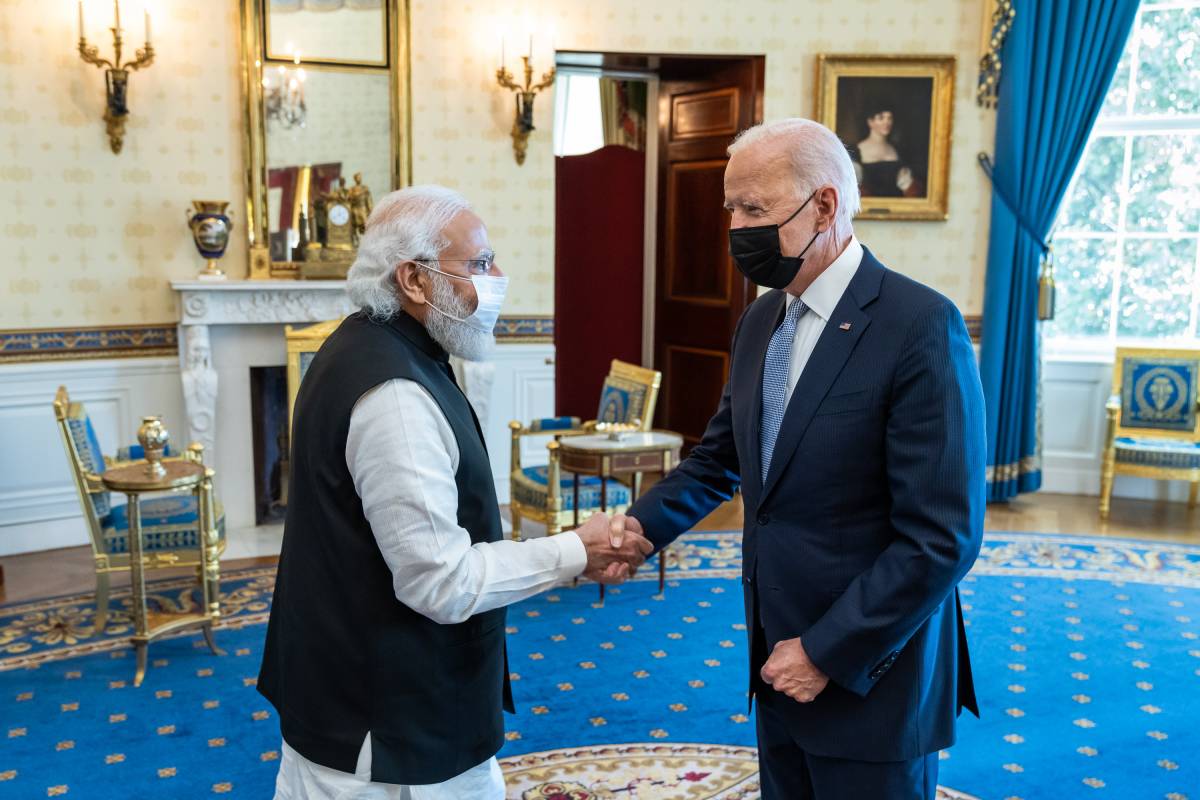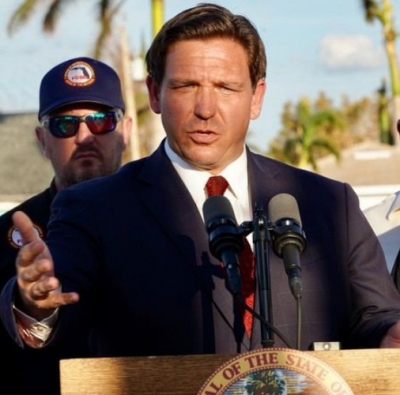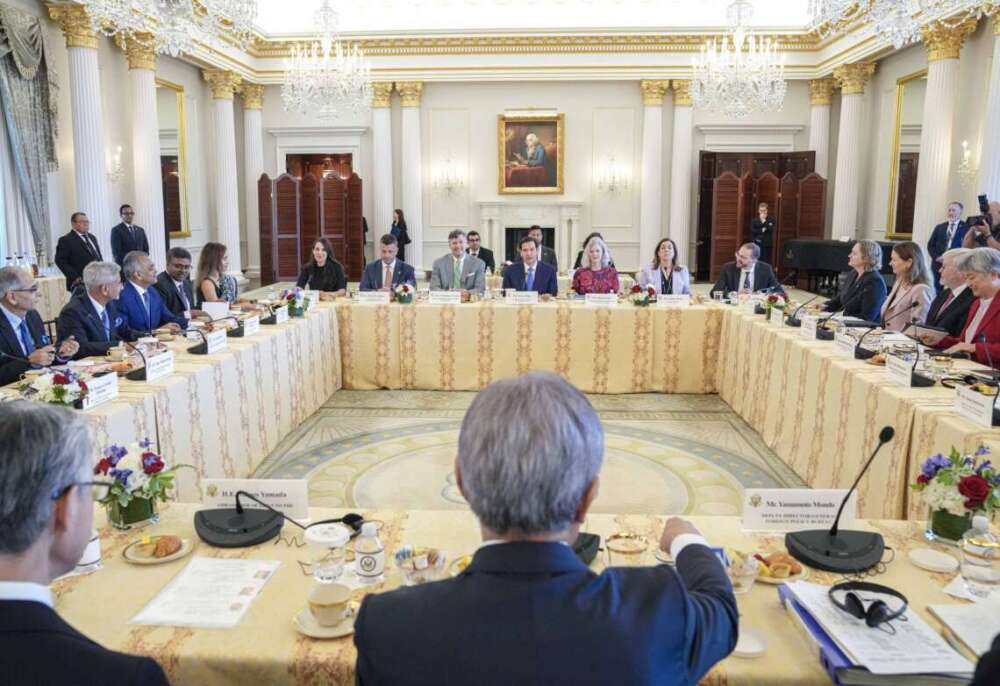Biden previously said he was looking into whether he could invoke the 14th Amendment, but was concerned of the economic damage that could occur while any legal challenges played out…reports Asian Lite News
President Joe Biden is not planning to invoke the 14th Amendment to prevent a US debt default, the White House said Tuesday, ruling out a constitutional solution to the current debt impasse.
President Biden and the Republican Speaker of the House of Representatives Kevin McCarthy have held three rounds of face-to-face talks to try and reach a deal to lift the current borrowing limit so the US can meet its existing spending commitments.
Invoking the 14th Amendment to the constitution, which some legal scholars have argued would allow the US Treasury to simply ignore the debt limit, “is not going to fix the current problem we have right now,” White House Press Secretary Karine Jean-Pierre told reporters.
Biden previously said he was looking into whether he could invoke the 14th Amendment, but was concerned of the economic damage that could occur while any legal challenges played out.
The remarks from Jean-Pierre suggest he has parked any plans he may have had to use a constitutional mechanism to resolve the debt crisis.
Jean-Pierre also appeared to rule out a short-term extension to the debt ceiling to allow Biden and Mccarthy’s teams more time to negotiate, telling reporters such a solution is “not on the table.”
Meanwhile, debt ceiling negotiations are locked on a classic problem that has vexed, divided and disrupted Washington before: Republicans led by House Speaker Kevin McCarthy want to roll back federal government spending, while President Joe Biden and other Democrats do not.
Time is short to strike a deal before a deadline as soon as June 1, when the Treasury says the government risks running out of cash to pay its bills. Negotiators are expected to convene Wednesday for another round of talks as frustration mounts. The political standoff is edging the country closer to a crisis, roiling financial markets and threatening the global economy.
“They’ve got to acknowledge that we’re spending too much,” said McCarthy.
Cheered on by a hard-charging conservative House majority that hoisted him to power, McCarthy, R-Calif., was not swayed by a White House counter-offer to freeze spending instead. “A freeze is not going to work,” McCarthy said.
The longstanding Washington debate over the size and scope of the federal government now has just days to be resolved. Failure to raise the nation’s debt ceiling, now at $31 trillion, would risk a potentially chaotic federal default, almost certain to inflict economic turmoil at home and abroad.
From the White House, press secretary Karine Jean-Pierre said it was “ridiculous” to suggest Biden wasn’t acting with urgency after Republicans complained about the pace. “He wants to see this done as soon as possible,” she said.
Dragging into a third week, the negotiations over raising the nation’s debt limit were never supposed to arrive at this point.
The White House insisted early on it was unwilling to barter over the need to pay the nation’s bills, demanding that Congress simply lift the ceiling as it has done many times before with no strings attached.
But the newly elected speaker visited Biden at the Oval Office in February, urging the president to come to the negotiating table on a budget package that would reduce spending and the nation’s ballooning deficits in exchange for the vote to allow future debt.
“I told the president Feb. 1,” McCarthy recounted. “I said, Mr. President, you’re not going to raise taxes. You’ve got to spend less money than was spent this year.”
Negotiations are focused on finding agreement on a 2024 budget year limit. Republicans have set aside their demand to roll back spending to 2022 levels, but say that next year’s government spending must be less than it is now. But the White House instead offered to freeze spending at current 2023 numbers.
“We are holding firm to the speaker’s red line,” said a top Republican negotiator, Rep. Garret Graves of Louisiana. “Which is that we will not do a deal unless it spends less money than we’re spending this year.”
By sparing defense and some veterans accounts from reductions, the Republicans would shift the bulk of spending reductions to other federal programs, an approach that breaks a tradition in Congress of budget cap parity.
Graves said there were still “significant gaps” between his side and the White House.
Agreement on that topline spending level is vital. It would enable McCarthy to deliver spending restraints for conservatives while not being so severe that it would chase off the Democratic votes that would be needed in the divided Congress to pass any bill.
But what, if anything, Democrats would get if they agreed to deeper spending cuts than Biden’s team has proposed is uncertain.
Asked what concessions the Republicans were willing to give, McCarthy quipped, “We’re going to raise the debt ceiling.”
The White House has continued to argue that deficits can be reduced by ending tax breaks for wealthier households and some corporations, but McCarthy said he told the president at their February meeting that raising revenue from tax hikes is off the table.
The negotiators are now also debating the duration of a 1% cap on annual spending growth going forward, with Republicans dropping their demand for a 10-year cap to six years, but the White House offering only one year, for 2025.
Typically, the debt ceiling has been lifted for the duration of a budget deal, and in this negotiation the White House is angling for a two-year agreement that would push past the presidential elections.


